#brian koppelman
Text
Ocean's Thirteen (2007)

Inexplicably, the Ocean’s franchise didn’t sink into oblivion after the sewage that was Ocean’s Twelve. This third chapter in the series fares much better than its predecessor but never reaches the level of the original (neither the original original or the 2001 remake). Still, as another installment, it does offer the remaining fans more of what they want to see, which is something.
After Reuben (Elliott Gould) loses his investment in a new hotel-casino to his business partner, Willy Bank (Al Pacino), he suffers a heart attack and becomes bedridden. Danny (George Clooney) and the rest of the Ocean Club decide to get even by ruining Bank and his new establishment.
If you’re not endeared to the Ocean’s crew, this plot will be an uphill battle. "Boo hoo. Poor Reuben is so upset he’s not making millions off this gaudy casino that he’s become catatonic. Guess it’s up to his buddies to get revenge on his behalf instead of just convincing the proper authorities that he was strongarmed into signing a contract?" Towards the end of the film, the crew’s old nemesis, Terry Benedict (Andy García, whose character is brought back under dubious pretenses), sees millions of his money donated to charity without his consent. I wonder if any of the cash the protagonists end up swiping from Banks would’ve gone anywhere except their pockets had they not had a score to settle. While some of this is mitigated by the fact that Willy Bank is a jerk, what we're seeing feels like a whole lot of “the 1%’s problems”. There isn’t a love plot to make us believe this is about anything but money unless you count the brotherly love between the Ocean’s crew. Even that seems like a stretch.
In the first movie and even in the second in a “sure, whatever”, kind of way, it made sense for these 11 people (we’ll get to that number in a moment) to join forces. Now? It seems overly optimistic to think the random Chinese acrobat who doesn’t speak English would put himself at risk as he does here. Now to be fair, this story makes much better use of its characters than Twelve did. No one gets stuffed into a bag and shipped off to nowhere halfway through, for example. Everyone has a role to play and it works though it should be noted that neither Julia Roberts nor Catherine Zeta-Jones return.
You’re wondering who the two new members of the crew are. One is the aforementioned Benedict, who plays the role of a benefactor. The other is… Eddie Izzard as Roman Nagel. I think. The motif of adding a new expert to the crew with each sequel has basically disappeared, and for good reason. This series can barely handle the people it has on its roster. Adding more is becoming increasingly problematic but it’s also necessary. See, “The Bank” has insane security measures, the kind no one in their right might would even try to circumvent. On the one hand, this makes for exciting scenes that make you wonder how the lock will get cracked. On the other, it makes the plot feel manufactured. For example, there's this super secure room that contains expensive jewelry. The plan to get in? Have Linus Caldwell (Matt Damon) and his phoney-looking rubber nose seduce Bank’s right-hand woman, Abigail Sponder (Ellen Barkin). With the help of some magic pheromones, she’ll get so hot and bothered she’ll have no choice but to bring Linus into the only room in the whooooole building that's guaranteed to be deserted. Apparently, there are cameras in the bathrooms, the closets and her private office. It’s a horrible subplot made unintentionally comical by the fact that nothing happens between her and Linus. The movie teases nudity for at least 15 minutes. Ellen Barkin's chest is ALMOST falling out of her dress for so long it’s ridiculous. I thought she was slobbering at the mouth for some man meat but she’s not even taking off her clothes? What’s going on here?!
I’ve been mostly bad-mouthing Ocean's Thirteen because the film is constantly on the brink of crumbling under its own weight. I will still call it a “good” sequel because fans of this series will be happy with it. You hate the bad guy, there are enough laughs to keep you smiling consistently and the con is so complicated it’s fun to see all the pieces coming together. All of the actors are obviously having a great time. I’m in no hurry to watch it again but if you love love love the first, you didn’t mind the second and you want to know if you should watch the third, then I say “sure”. I say this despite feeling like twice was too many for me. (April 29, 2022)
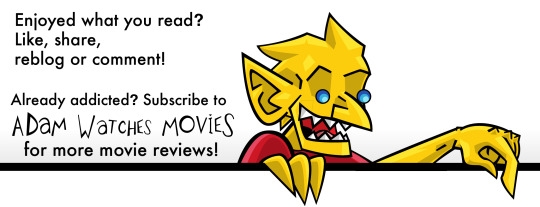
#Ocean's Thirteen#movies#films#movie reviews#film reviews#Steven soderbergh#Brian Koppelman#David Levien#George Clooney#Brad Pitt#Matt Damon#Andy Garcia#Don Cheadle#Bernie Mac#Ellen Barkin#Al Pacino#Casey Affleck#Scott Caan#Eddie Jemison#Qin Shaobo#Carl Reiner#Elliott Gould#2007 movies#2007 films
3 notes
·
View notes
Text
“Billions” ends not with one man reigning supreme, but two titans shaking hands. Chuck (Paul Giamatti) and Axe (Damian Lewis) joined forces early in Season 7 and — despite a history filled with trickery and betrayal — remain loyal to the very end. Along with their devout team of stock traders and political savants, the duo takes down Mike Prince (Corey Stoll) and his bid for the presidency, before parting ways as friends. Chuck will continue working for the state of New York, while Axe is back behind the soon-to-be sleek desk of his hedge fund.
For a series that began with promises by both men to utterly destroy the other, some fans may be miffed that neither star is crowned as champion. But for showrunners Brian Koppelman and David Levien, the “Billions” series finale isn’t all sunshine and rainbows. It’s an embodiment of what the series has been all along: a massively entertaining reflection of the way the world works. For every cheery, satisfied smile, there’s deeper meaning tucked within the folds. So IndieWire dialed up the co-creators to break down the ending, the final season’s big swings, and how they managed to fill “Billions” with so much beautiful music.
IndieWire: For the final season, when and why did you decide it would be best for Chuck and Axe to team up, rather than go after each other?
David Levien: We felt like the real mano-a-mano thing between Chuck and Axe reached its fullness during the end of Season 5, where neither guy lost completely, but neither guy won completely. It was like pure victories and standoffs and grudging respect for the opponent who played you to your very end. Then over the course of the sixth season, as Mike Prince started to reveal the darker hues of his character and how he could be a danger, we realized we had a formidable enough foe that these others could team up against him. In a certain way, that’s the most fun because the barbing is still there, but they have a common cause.
What did you hope fans would be left thinking about?
Brian Koppelman: Probably in that Wendy [Maggie Siff] and Taylor [Asia Kate Dillon] leave, and Rian [Eva Victor] leaves. It seems to me we feel pretty good about the fact that they leave, and that Sacker [Dola Rashad] understands where Sacker needs to be. Scooter is a very important character to us. Daniel Breaker’s a genius, and Scooter says what he says to Prince [quitting to consider when and how their moral compass went awry], and he is going to do what he’s going to do. To us, we tried to get each of them a moment where the audience can think about what it means for their trajectory from this moment forward.
From the jump, the last episode leaves little doubt that Chuck and Axe are going to win. How did you decide on that approach, that tone, for the finale, rather than teeing up a big reversal or twist as in past seasons?
Levien: If it were a season finale and we were doing this, then we could have dedicated half of the real estate toward the Prince side of the reversals, but we had to devote the other half of the real estate to the valedictories and the goodbyes. So we made the conscious decision for them to have this attitude, right from the beginning, that the outcome’s not in doubt. Basically, once they securely got Prince into Camp David without his phone, with no contact to the outside world, they knew how the rest of the dance steps were going to unfold. We didn’t want to drag that out and then have all these characters that we’d been with for seven seasons not get to have resolution on a character level.
Koppelman: Two things: 1. If you’re watching the show, you know Prince ain’t winning. So to [make it appear otherwise] felt disingenuous to the audience. Between the penultimate and ultimate episodes each season, we could fuck with it, but this is the end, so they’re going to win. 2. I would say this, Ben: On a plot level, 100 percent, you’re right. We made the decision to let you know who the winners and losers are going to be. But there’s something else that’s been going on the whole time. The show has a lot of morality questions underpinning it, and so their souls are in peril for a lot of this episode.
This is one of the tricks about the show, right? From Season 1, people viscerally bonded with this guy, Axe, because of his backstory and because of the corrupt forces that were after him. So viscerally, they hung with him, even though he let Donnie die and all this stuff. What we hope happens is that one asks oneself, “Why do I feel this way about this guy? What does that say about the world we’re living in? And about the value system we speak versus the value system that we actually feel and live? So Bobby Axelrod, for all this talk about freedom, where’s he end up and what does he say as his final line? [Axe ends up running Axe Capital again, and his final line is to his employees: “Let’s make some fucking money.”]
So it’s working on this level, but it’s also working on that level. We have this thing about our work: People often misread it early on, but we’ve had a long enough run that eventually it lands. So, some people had to review “Super Pumped” on only five episodes, but if they watched the last two episodes, they would know that it was about something else. We accept all that. What we write is entertaining and some people want to indict us for it being entertaining, but we are interested in these moral questions. It’s in our work. It’s in everything from “Rounders” to “Knockaround Guys” to “Solitary Man” to “Billions,” even to “Tilt.” It’s just in there. Ultimately, we think people will figure it out, but we want to entertain, too. It’s important to us that it’s entertaining and that it’s not work.
These days, there’s so much to watch and so much emphasis on trying to get through everything. You kind of have to hope everybody processes not just what happens, but what it could mean, before auto-play pulls up the next show in their queue. We all need time to let stuff settle in, and the “too much TV” era doesn’t always encourage that kind of contemplation.
Koppelman: It takes time. In doing this, you have a choice between spoon-feeding [points] to the audience and just choosing to trust they’ll appreciate them over time. The immediate moment we live in makes it hard. It makes it really hard. But I go back and watch shows all the time, and so does he, and so do our friends, and so do you. We all do it. Then, five years later, you notice something new and go, “Oh fuck.” That’s a great thing, and we’re comfortable [with it.] We made indie movies for a lot of our careers, so to us, the fact that we’ve developed an audience that’ll watch this shit is amazing and thrilling. Yeah, the plot is one thing, but the other stuff at stake matters as much to us, and we hope eventually it does to everyone else, too.
Levien: There’s also just the mechanics thing of the audience learning how it happened. It should be very satisfying for them, even if they have a lean on which way it may work out. That’s something that we came to understand heavily when we were writing “Oceans 13” and working on it with [Steven] Soderbergh. Because that’s not a movie where you’re wondering if George [Clooney], Brad [Pitt], and Matt [Damon] are going to win or lose. They’re probably going to pull it off. But it’s like, “How are you going to get there? How are you going to turn the cards over to delight the audience?”
Koppelman: That scene in “Oceans 13” when the guys are by the Bellagio Fountains — early in it, not the end — I remember George really talking about finding these little moments where you understood why it mattered to these guys. It was great. Hearing George talk out the way he thought about character has stayed with us for a long time. Within these entertaining things, you can find ways to land something significant — you hope.
Given the significance of music in “Billions,” how long have you known your final song was going to be “Take the Money and Run”?
Koppelman: Did it work for you?
It did. I thought it matched the vibe of the episode and leaves the audience on the upswing.
Koppelman: That’s what we think, too. We think a lot about the music, and we wrote the song into the script. The two of us are sending songs and playlists back and forth all the time, and we’ve been like brothers since we were 15, so the resonance the songs have are similar for the two of us. It’s not that we thought of it so long ago, but when we thought of this song, the moment one of us said it to the other, it was like, 100 percent. There was no doubt.
Levien: We can’t say we thought of it when we were making the pilot. It’d be very cool if we had, but we weren’t driving toward this the entire time.
Koppelman: But it is always satisfying when you write them into the script and then it works as well as you hoped. It goes to the heart of this final season. We really were thinking about “Billions” obsessive fans this season. We decided that that’s who we are, and we wanted to make the show for folks who cared a lot about the characters, the world of the show, the language of the show. The show exists in a slightly canted world — even though we never cant the camera — and that song exists in that kind of space, too. So it all kind of felt like it worked together.
This may be a question just for me, but how often were you able to write songs into the script and actually get the music? Because the licensing, the budgets, all of that can be such a pain in the ass.
Levien: We didn’t run into that problem. Maybe it was just an instinct thing, but we would write some big ticket songs into the scripts and then sometimes they’d be very obscure songs, so it tended to balance out.
Koppelman: But also I would say right from the very beginning, we went to Showtime and said, “Look, we’re going to use music in a certain way. Let’s know going in how important the music’s going to be. Let’s have a music budget that allows us to take those shots during the year. We’ll manage it. If we’re going to hit the hard ceiling, we’ll call you way in advance.” And then they did a really cool thing. Not every network does this, but Showtime came to us and they said, “Any product placements you do on the show, we, Showtime, won’t take that money. You can use that money for songs.”
Oh, wow.
Levien: They said, “You can apply it to your show budget.”
Koppelman: So if you saw a car on the show and were like, “That seems like a product placement.” Well, that’s the money that got “In the Evening” by Led Zeppelin in the show. So our post-supervisor would tally [the budget] and go, “Here’s where we are. Here’s what the product placements are covering. OK, it’s going to be really easy to use that U2 song.”
Dave and I picked every song, so [our music supervisor] Jim Black didn’t have to worry about that, but what he was amazing at was the clearances. He built relationships over a long career and he expressed to people what music lovers we were. Then Jim would say to us, “Hey, to get this Neil Young song, if you really want ‘Old Man,’ you should write Neil Young a letter and I’ll get it to him. So we would write letters and they were earnest because we meant it.
Levien: We were putting [these songs] in because they mattered to us, so it was easy to express that to the artist.
Koppelman: We could describe to Neil Young, “Here’s what’s playing, here’s what’s at stake in this scene, here’s why we’re using the song. We think [our scene is] in the spirit of the song.” I remember doing that, and the next day they cleared the song for a very reasonable price.
Then the music business noticed that when we would feature a song in a certain way, that song did well that week. Then some artists became fans, or their managers did. “Atlantic City” was the first Bruce Springsteen song we [asked for], and we heard that he was reading the script on vacation. He went outside his place, and he was reading it. Obviously, that’s nerve wracking, but then we got word back [that we could use it], and when I met him a couple years later, he told us that he and Patti watched the show on Sunday nights.
Among the big swings in the final season, the restaurant montage at the start of Episode 9 stands out. What were the origins of that?
Koppelman: We had a suspicion that people might be moved by it, but it was beyond what I thought. That [montage] was written into the script. That song [“I’ve Loved These Days” by Billy Joel] was written into the script. Look, let me start from the fact that we’re two Long Island kids growing up, so that creates a certain association with Billy Joel and the way Billy Joel saw New York. We’d had that song saved for a while, for the last season, and Patsy’s is an incredibly important restaurant to us, so it’s got to start there. My dad started taking me to Patsy’s. My dad, who we dedicated the first episode of the season to, he passed away between Seasons 6 and 7. So Patsy’s matters a lot to us and what it means in New York. There are amazing stories about Sinatra and Patsy’s that are just mind-blowing.
Levien: So we were intending to use it in a meaningful way, and we were saving it.
Koppelman: It led us to think, “OK, this is a moment to just give a hug to everybody, to say goodbye to the show together.” That’s what it felt like, and that’s what that restaurant kind of feels like. While writing that episode, one of my son’s friends, his dad had just passed away very close in time to mine, and I went to this kid’s dad’s funeral. Then on the way home I was alone, and I went to Patsy’s and I just sat at one of these tables by myself and texted Dave from there.
If you write something like [“Billions,”] it’s a part of you for so long. When he was writing this first novel years ago, before I was a writer, David said to me, “When you’re in a really good one, where it really feels like you’re connected to it, everything that happens in your life finds its way into the work in some way.”
#billions#7x12#brian koppelman#david levien#chuck rhoades#bobby axelrod#mike prince#wendy rhoades#taylor mason#rian billions#kate sacker#scooter dunbar#soundtrack posting#7x09
2 notes
·
View notes
Text
#twitter#celebrities leaving twitter#shonda rhimes#tea leoni#mick foley#alex winter#sara bareilles#toni braxton#whoopi goldberg#gigi hadid#brian koppelman#erik laren#ken olin#bill morrison#marina sirtis#sulley sullenberger
0 notes
Text
wip: culinary pun punchline built around my thought that "oregano" could be "i reckon [no/know/o-]"
#this one's for brian koppelman#(taking notes of a potential koppelman/compliment pun)#oregano onion....i reckon no one in....#oregano onion a bouillon; now it's Really a shoutout (antagonistic)#could be the entire punchline as a complete statement. i reckon: no. with a sufficiently herb specific setup#but of course also then stringing it out as long as possible + as many syllables Punning as possible
1 note
·
View note
Text
youtube
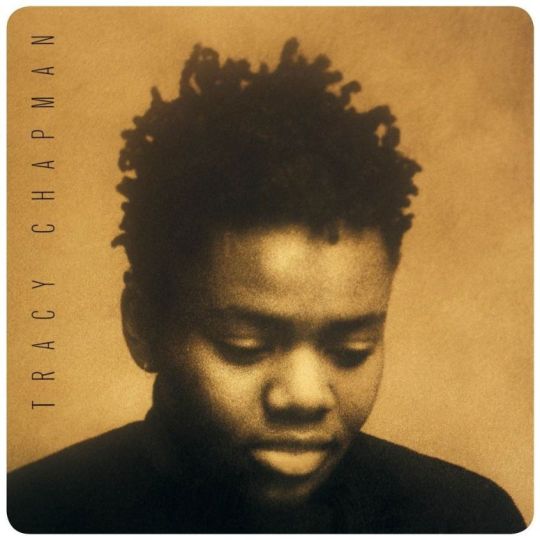
Tracy Chapman is the American singer-songwriter's debut album released in 1988.
Tracy Chapman was discovered by Brian Koppelman, a fellow at Tufts University in Medford, Massachusetts, in 1987. He revealed: "I was helping organize an anti-apartheid boycott protest at school, and [someone] told me that there 'She was this great protest singer who I should have invited to the rally.' So he went to see Chapman perform in a café. He added: "Tracy came on stage and it was like an epiphany. Her presence, her voice, her songs, her sincerity - it all came out." Koppelman told her that her father co-owned the independent record company SBK and that he could help her make a record. The singer didn't take the offer much into consideration. Koppelman, however, was really interested in Chapman, so he continued to go to most of her shows, eventually convincing her.
After the success of a demo of "Talkin' 'bout a Revolution" on radio stations, she gave a copy of the song to her father, Charles Koppelman, who signed her to Elektra Records. The singer confessed that "I would never have thought of getting a contract with a major record company [...] For the entire period in which I was a little girl listening to records and the radio, I would never have thought of the possibility that the record market would find the kind of music I was making. Especially when I was singing songs like "Talkin' 'bout a Revolution" in the seventies [...] I didn't see a place for myself there."
Producer, David Kershenbaum, stated that the album was "made for the right reasons". He further stressed: "There were a number of ideas that we wanted to communicate, and we felt that if we were sincere and true to those ideas, then people would get the emotion and the content that was in the lyrics." album was favorably received by critics and audiences. Within two weeks of its release, it had already sold one million copies worldwide, proving to be a huge commercial success.
Interviewed by the Guardian, Kershenbaum stated that much of the public wanted "what [Chapman] had" and that the singer "arrived at the right time with the right material".
The album has sold over 20 million copies and is one of the first works by a female artist to have sold over ten million copies.
[Rock photo gallery]
18 notes
·
View notes
Text
News broke today about the possibility of a movie based on the highly acclaimed book by Greg Renoff — Van Halen Rising — the book that charts the iconic band's journey from Pasadena locals to rock legends.
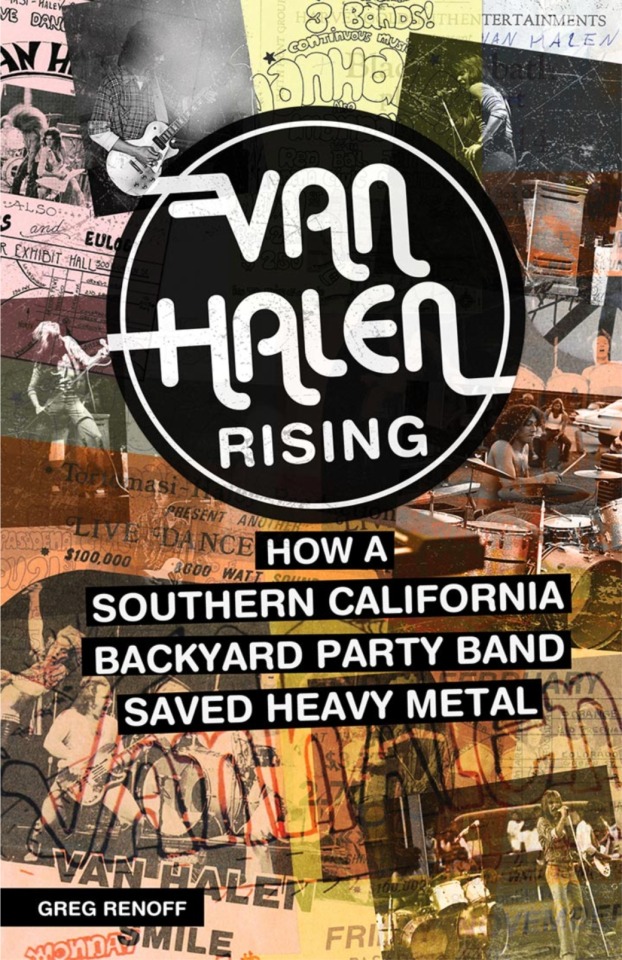
What the chances are it'll happen, we dorn't know yet. But it's possible. Renoff has posted an update to Facebook:
“Some exciting news broke today, about me and my book Van Halen Rising via the video below.
A few years back, my book was optioned by a producer. What that means is that the producer and his team had the exclusive right to commission a screenplay and to try to get a deal for a movie based on Van Halen Rising.
Fast forward to today, and there IS a screenplay based on my book, written by screenwriter, producer, and director Jeff Wadlow. Jeff's enthusiasm for the project (and naturally the Van Halen origin story) is off the charts, and accordingly, he's worked incredibly hard on his script.
I can't describe the narrative arc in the script better than Jeff, so check out his take on his own script in the video below.
Obviously, I think the Van Halen origin story is compelling, cinematic, and offers key insights about the place and time that birthed the band and it's incredible music.
Full disclosure: I am biased, but that's what I think. Needless to say, when you spend five years & conduct 200+ original interviews while writing a book, you believe there's something very worthy that you are pursuing as a historian and author.
As of today, the next potential step is for it to go out to film financiers at some point in the future.
What comes next remains to be seen, needless to say. Anyone who knows anything (and know very little) about the movie business will tell you that getting from script to screen is no easy feat. So there may, or may not, ever be a movie based on my book.
Let me repeat: There may, or may not, ever be a movie based on my book.
It's exciting to think there might be, but expectations are best tempered by reality.
That said, am extremely grateful to Jeff and his team for all their hard work to get to this point!
Today I am also thinking of the well-established, gifted individuals who read my book before it was released and said: this is good. I like this. I will endorse it: writer Chuck Klosterman, director/writer Brian Koppelman, & MTV VJ & DJ Martha Quinn. Thank you for believing in me.”
— Greg Renoff
youtube
#van halen#eddie van halen#michael anthony#david lee roth#alex van halen#2024#news#post van halen#pre van halen#van halen rising#Greg Renoff#Jeff Wadlow#movies#videos#books#a trip to the movies with alex zane#interviews#facebook#vhnd#van halen news desk#Youtube
5 notes
·
View notes
Text




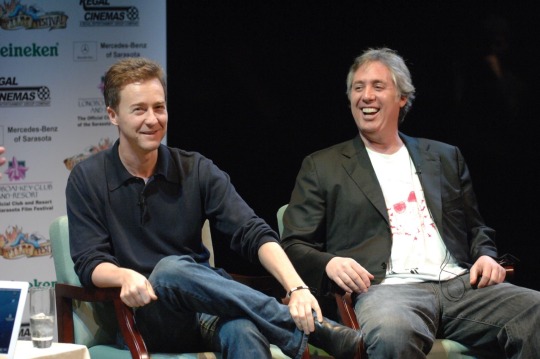



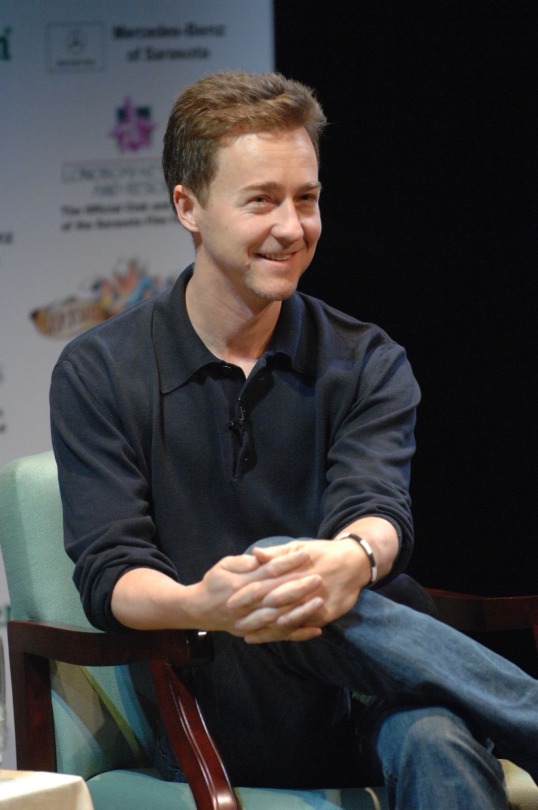
Sarasota Film Festival 2007 - Conversations With Ed Norton and Brian Koppelman
SARASOTA, FL- APRIL 15: Actor Edward Norton on stage at the Asolo Theater during the Sarasota Film Festival on April 15, 2007 in Sarasota, Florida.
DO NOT REPOST TO ANY OTHER PLATFORMS.
©️Credit to me
#edward norton#fight club#primal fear#the grand budapest hotel#birdman#hulk#red dragon#knives out#gettyimages#photos#jpgs#my edit
25 notes
·
View notes
Text
Monday, September 4, 2023 8pm ET: Feature LP: Tracy Chapman (1988)
Tracy Chapman is the debut album by American singer-songwriter Tracy Chapman, released on April 5, 1988, by Elektra Records. The album was recorded at the Powertrax studio in Hollywood, California. In 1987, Chapman was discovered by fellow Tufts University student Brian Koppelman. He offered to show her work to his father, who owned a successful publishing company; however, she did not consider…
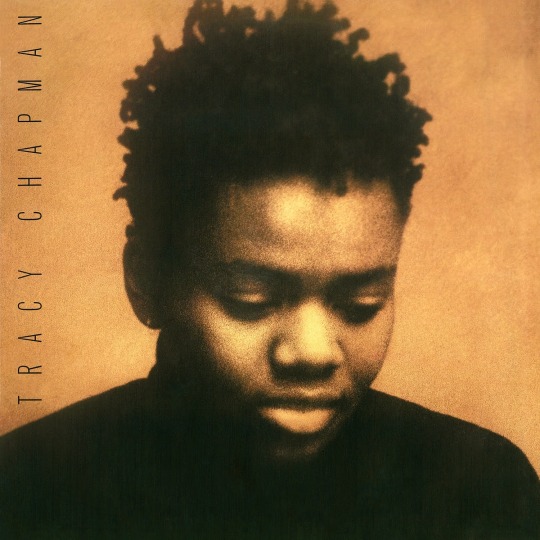
View On WordPress
2 notes
·
View notes
Text
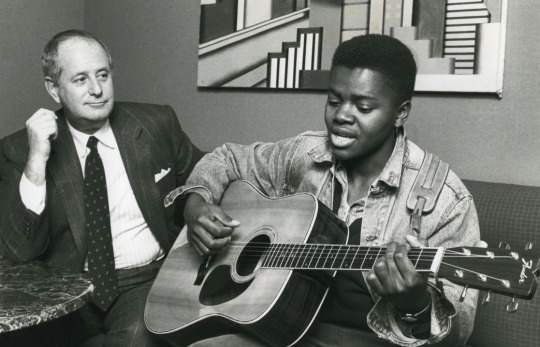
Via Tracy Chapman Online
We heard that Charles Koppelman, who signed Tracy Chapman at SBK Publishing and played a key role in the launch of her career, just passed away. Without him, maybe must of us would have never heard of Tracy's music, who knows...
🙏Our deepest condolences to the Koppelman family (Brian Koppelman ...)
#charleskoppelman #briankoppelman #tracychapman
4 notes
·
View notes
Text
Rounders (1998)

Even if you’ve never played a hand of Poker, Rounders will infect you with a love for the game. By the end, you might not know the rules but you will know the psychology that differentiates the winners from the rest. It’s a sports movie that might actually inspire you to have a go at it.
In New York City, law student Mike McDermott (Matt Damon) loses his entire savings to Russian mobster Teddy KGB (John Malkovich). Following the disastrous game, he promises his girlfriend Jo (Fretchen Mol) he’ll quit. Months later, Mike’s childhood friend Lester “Worm” Murphy (Edward Norton) is released from prison. The unapologetic cheat immeditely sets out to make up for lost time - and win the money he owes - by becoming a full-blown rounder once again. One taste and Mike falls off the wagon.
To understand what professionals like about Poker, you need to understand certain things about the game. Your first lesson comes from Worm. He could win fair and square but he’s too impatient. He wants things done fast and you get the sense that deep down, he sees Poker as a different game than everyone else. For him, the objective is to win money as quickly as possible. He likes to punish those who have the audacity to sit down at his table. He knows the game too well for the luck of the draw to make Poker a gamble but he wants the thrill of uncertainty, which is why he cheats. He might even enjoy getting caught. After all, if he pays back his debt to Grama (Michael Rispoli), he won’t need to come up with $15,000 in record time. He’s poison that’s threatening to take down Mike.
From this irresponsible antagonist, we learn that Poker isn’t a gamble, a game you win quickly, or a way to make money. Yes, you can make a living off of the tables - that’s exactly what Mike’s mentor, Joey Knish (John Turturro) does - but even he isn’t quite a “true” player. Joey always plays it safe and always quits while he’s ahead. He would never even dream of playing at the World Series of Poker because it would be a distraction, a title to flaunt instead of a way to ensure he provides for his family. The true player is somewhere in between. Honest and dependent on skill rather than luck but willing to risk it all when the time comes. Rounders is about a lot of other things but at its core, it’s about this journey Mike takes towards realizing what kind of player he will be.
With a big debt that could mean the death of both Mike and Worm, you’ve got high stakes. The strain Mike’s old habits put on his relationship with Jo supplies the drama. KGB provides the ultimate antagonist to defeat in the final round. You’ve got all the ingredients of a great sports film and then, the film takes it one step further. The most accessible of all movie sports - baseball, soccer, and basketball - require only basic equipment. A half court, shoes, and a ball. Shoes, a goal, and a ball. Four bases, a bat, a ball, and gloves. The same applies to Poker. You literally only need a standard deck of cards. You also need a certain amount of skills - it’s the reason they could never make a Snakes and Ladders movie. Becoming a great Poker player is achievable by just about anyone. As Mike describes the way people hold themselves when playing cards, you feel your ability to tell the bluffs from the baits grow. Now you’re seeing the game in a whole new way. It doesn’t matter that you don’t know whether a straight flush beats a full house; what matters is that now you can tell by the players’ faces who’s going to win.
Rounders is a memorable movie that tells you a lot about Poker without ever explaining all the rules and strategies. You’ll be so invested in what’s going on you won’t even notice its familiar structure until the film’s over. Thanks to its great cast, this is one you’ll come back to. (Full-screen version on VHS, May 25, 2021)
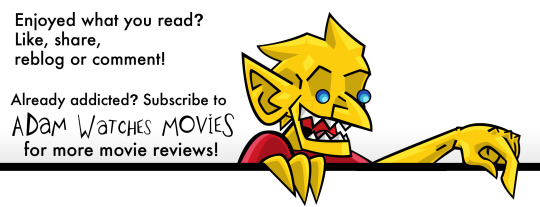
#Rounders#movies#films#movie reviews#film reviews#John Dahl#David Levien#Brian Koppelman#Matt Damon#Edward Norton#John Turturro#Famke Janssen#Gretchen Mol#John Malkovich#Martin Landau#1998 movies#1998 films
1 note
·
View note
Text
There could be only one Machiavellian daddy standing in the "Billions" finale revenge showdown between Bobby "Axe" Axelrod (Damian Lewis) and his hedge fund usurper (and dangerous presidential candidate) Michael Prince (Corey Stoll).
After seven seasons of cutthroat high-finance drama and power struggles, "Billions" went endgame with the titan matchup in Showtime's series finale (now streaming on Paramount+; airing on Showtime Sunday 8 EDT/PDT).
But the entire cast of characters featuring ever-evolving allegiances got its due, including longtime Axe persecutor U.S. Attorney Chuck Rhoades (Paul Giamatti), now working with his former nemesis to bring down Prince. The multi-pronged farewell episode even featured former U.S. Attorney Bryan Connerty (Toby Leonard Moore), who hadn't been a "Billions" regular since Chuck engineered his legal problems and prison stint in Season 4 for illegal wiretapping. Connerty made a surprise appearance to receive his reinstated law license, also engineered by Chuck as a peace offering.
"This show was for the show superfans; we found the ultimate landing spot for all these characters," says Brian Koppelman, who created the series with David Levien and Andrew Ross Sorkin.
The final positions from the "Billions" finale:
Axe made Prince a pauper, and resumed his office chair throne
Prince helped orchestrate Axe's downfall in Season 5, which allowed him to get his greedy hands on Axe Capital. As Axe, the heavy-metal-T-shirt-wearing Road Runner of finance, realized he had finally been defeated by Prince, he uttered the line "So this is what it is like to lose."
In real life, Lewis was leaving "Billions" to return to life in England for personal reasons. So Axe was written off (exiled to Switzerland) to avoid arrest by Chuck, thanks to a tipoff from Prince. Prince took over Axe's throne and renamed the kingdom Michael Prince Capital (MPC).
With Lewis and Axe back for the final season, the downfall script was reversed. Axe returned to New York, with Chuck's help and urging, to join the team trying to stop Prince. The Never Princers, who included MPC's general counsel Kate Sacker (Dola Rashad), conspired to annihilate Prince's stock portfolio while the unsuspecting presidential candidate met the U.S. president at Camp David, as his mobile phone was locked up by Marine security.
With the trap sprung, Prince flew into MPC in a rage. Showing the volatile side no one wanted to see responsible for nuclear weapons, Prince threw a printer through the office window of Chuck co-conspirator and ex-wife Wendy Rhoades (Maggie Siff).
Prince bottled his rage seeing Axe and an office full of former employees present to witness his financial demise and presidential ambitions crushed in one bad news day.
"So yeah Mike, this is what it's like to lose," Axe said to Prince, parroting his own line, with a very different subject.
"I bet that felt good," Prince sneered back.
"What does it say about someone who wants to throw somebody's words back in their face? Not great things," says Levien of the line. "That's why we found it so satisfying."
Big winner Axe reclaimed his office chair with no trumpets, but only his faithful lieutenant Mike "Wags" Wagner (David Costabile) standing just behind him.
While Prince hid dark ambitions behind noble ideas, Axe sent his traders out with the capitalist battle cry "Let's make some ... money!" with The Steve Miller Band's ode to bandit living, "Take the Money and Run," playing as the exit soundtrack.
"That song felt just absolutely perfect for the show," Koppelman says.
Prince went down defiantly, vowing revenge
With Humpty Dumpty falling off the financial wall and Prince's world in tatters, even his loyalists disbanded. Right-hand man Scooter Dunbar (Daniel Breaker) saw the light and realized how far the power duo had drifted in its quest for power. Finding he has been spared financial ruin, Scooter announced he's embarking on his dream of conducting an orchestra.
In classic villain mode, Prince admitted defeat but vowed to return and financially crush Axe and anyone else who knocked him. "This country is built on second acts, and when you see mine, you better duck and cover," Prince said.
"People like Prince are not laid low by things that would lay all of us low," Koppelman says. "In three years, the guy will somehow have bought The Sphere off James Dolan."
Chuck and Wendy end up laughing over dinner
Chuck, the main Axe battler in many season finales, relished the slightly less sexy victory over Prince. Chuck also finally came up triumphant in his personal life. Wendy and Chuck's marriage, and vigorous BDSM sex life, had ended acrimoniously after Wendy worked for years as Axe Capital's high-end performance coach.
But "Billions" ended with the two exes smiling as Wendy walked out of Axe Capital moments after turning down Axe's return to work offer. Wendy and Chuck agreed to go on a family dinner with their two children.
The final shot featured Wendy and Chuck laughing at dinner with their kids, as noted chef Connerty performed impressive culinary tricks on the teppanyaki (Moore's real-life cooking skills were often highlighted).
Wendy and Chuck don't resume life as a couple, "but they settled their issues, coming to a great place of mutual understanding, fondness and co-parenting," Levien says.
#billions#7x12#brian koppelman#david levien#bobby axelrod#mike prince#chuck rhoades#bryan connerty#scooter dunbar#wendy rhoades#and none for taylor i guess :(
3 notes
·
View notes
Text

youtube

youtube

youtube

youtube

youtube


youtube

youtube

youtube

youtube
1 note
·
View note
Text
¿Quién es Tracy Chapman?
En los primeros intentos de producir el disco debutante de Tracy Chapman, diversos productores la rechazaron, ya que no favorecían su dirección musical; tal vez era demasiado acústica y solista para los tiempos en la cima del heavy rock, o su color de piel contaba a la hora de hablar de folk en los pasillo de la Universidad de Tufts en Boston. Sin embargo, David Kershenbaum (productor de Laura Branigan, Joe Jackson y Duran Duran) decidió producirla, ya que quería grabar un álbum de música acústica. El disco fue grabado en Hollywood, California, en ocho semanas. La mayor parte de la composición se basa en causas políticas y sociales que aún alcanzan la estela del racismo en los EEUU. Tracy Chapman ganó entonces la aclamación de una gran mayoría de críticos de música, elogiando la simplicidad, su capacidad vocal y su contenido lírico político y social. La valió para el premio Grammy a Mejor Nueva Artista de 1988. A ella le siguió Milli Vanilli.
youtube
El álbum obtuvo el éxito comercial en la mayoría de los países en los que fue lanzado, llegando a la cima de las listas en casi todos, incluyendo Austria, Nueva Zelanda, Suiza, Dinamarca y el Reino Unido. Alcanzó el N° 1 en el listado Billboard 200 de EE. UU., y fue certificado seis veces platino por la Asociación de la Industria con ventas que superaron los seis millones de copias solo en Norteamérica. De ahí partieron tres singles, el más exitoso comercialmente fue "Fast Car". La canción fue interpretada además en el Tributo al 70° cumpleaños de Nelson Mandela. Debió ser la mejor actuación para una desconocida en los 80: una seria cantautora de 24 años que reemplaza a un gigante del pop en el escenario con una guitarra acústica; Stevie Wonder acababa de bajarse frente a 74 mil personas en el estadio Wembley de Londres con una audiencia televisiva global de calculada en cientos de millones de televidentes cuando Wonder extravió algunos programas informáticos vitales y no pudo realizar su show completo, decía el diario Financial Times.
"Fast Car" se ubicó en el Top 10 de Billboard Hot 100 en el N° 6 en 1988 y fue éxito radial en Australia, Nueva Zelanda, Irlanda, el Reino Unido y otros países europeos. Inevitablemente, la canción fue además posteriormente lanzada por el gigante de los reality shows en Inglaterra, Michael Collings de Britain's Got Talent, haciendo todo lo posible para no destruirla en 2011. El artista pop Sam Smith también hizo una versión en vivo para BBC Radio 1 en 2014; sin embargo, las versiones más extrañas ocurrieron cuando fue versionada por dos cortes discotequeros, un de Jonas Blue con Dakota y otra por TobTok con las vocales de River. De nuevo, "Fast Car" alcanzó el N° 2 en el Reino Unido y el N° 1 en Australia, pero ninguna va más allá de la primera versión, incluso como una canción casual del pop de la que una inmensa mayoría ignora a su compositora/intérprete y arreglista: Tracy Chapman es la primera mujer negra en la historia en tener el crédito exclusivo de composición de un éxito country número uno, cuando la versión de Luke Combs de su canción de 1988 “Fast Car” alcanzó la cima de la lista el año 2023.
youtube
Visto en retrospectiva, no había nada como Tracy Chapman ni en la radio, ni en la industria de la música en 1988 y a ella también le tomó por sorpresa su éxito: "No creo que alguien hubiera estado esperando un disco de una cantautora solista de la manera que fue recibido mi primer disco, yo tampoco me lo esperaba, desde luego, no tenía idea de lo que se venía".
Un año antes, en 1987, Chapman fue descubierta por su compañero de la Universidad de Tufts, Brian Koppelman mientras estudiaba antropología. Allí se ofreció a presentarle su trabajo a su padre, que era dueño de una exitosa editorial; sin embargo, ella nunca consideró que la oferta fuera seria y continuó cantando ocasionalmente en el metro. Sin embargo, después de múltiples presentaciones, Koppelman encontró un demo de ella cantando su canción "Talkin' bout a Revolution", que promovieron las estaciones de radio universitarias, y finalmente fue contratada por el sello Elektra Records.
youtube
Nadie lo imaginó, pero en la ceremonia 66 del Grammy, la vimos interpretar una cación que envejece con la nobleza de sus canas, y “Fast Car” alcanzó el puesto N° 1 en iTunes de EE. UU. después de una presentación en vivo con Luke Combs, casi 36 años desde su lanzamiento.
0 notes
Text
in passing saw a scene and a half of Young Sheldon like in this day and age can a new series (didn’t it start like idfk. last year. maybe the year before) where clearly a premise is audiences being familiar with your “we all know people who are just Like That right” character archetype it’s like. writers have to be at all aware that so much of that always overlaps with like unknowing caricatures of autistic people, right. and you’ve also made a premise the Young part so like, now the butt of the joke is like 7 or something
anyways from what i immediately gleaned the episode’s bit had to do with 7 or something young sheldon being preoccupied with trying to reconcile inconsistent details of lotr lore. in the first half scene a teacher remarks in front of the whole class that it is bad enough to be around young sheldon for an hour a day. in the next scene some [the comic book store guy who is a hippie and lore nerd] is listening to young sheldon and i’m like oh nice so this will be about how something uninteresting / weird to some is not universal and this guy will act normal to young 7 or something sheldon. the guy does and gives a knowledgable response & then you know, there’s young sheldon basically just clearly expressing the response in an involved / specific way some would find unusual, and then the punchline is comic guy having whatever revelation about getting to be normal now b/c he’s like gosh do i sound like that to other people
and i mean you know, given what we get when it’s like, this character is Textually Autistic. or even when like it’s a reality show and people are autistic and everything’s framed in xyz way. out here where sometimes winston [clearly of that “we all know people who are just Like This” genre] billions is given such verisimilitude / there are certain details at times that make it like, could anyone on the writing side of things be aware that this Could be a “oh, parodied Autistic People here” situation, but how then it’s like well would you even want them to know if the fundamental “punching bag / butt of jokes” status isn’t changed, which hasn’t yet ever changed for winston (though he is also a plot device in others’ character arcs, so he can get material re: that sometimes which lets him Not be currently punched / treated as a joke) so kind of have to presume it won’t. wherein like the highest hopes here even re: “you realize this is an autistic character, inadvertently” does in fact hinge on letting winston’s idiosyncracies simply ever be invoked in material that is at all sympathetic / just treats it seriously or you know, more matter of factly ever. where now it’s like well if winston & tuk being friends continues to be anything rather than a momentary joke to get winston, a third of tmc, out of the other two thirds of tmc’s way for a while, that’ll be the closest to winston being treated normally / sympathetically / matter of factly but probably only b/c tuk Also can be given [punching bag / butt of the joke] material so it’s like, well two wrongs make an amicable interaction....penning an open letter short essay to the writers that just goes “why do you think a character based at all on A Way Actual People Can Be would be universally regarded via a perspective that firmly Others him” like why are we never ever given winston any arcs for his own sake examining his emotions & motivations when this is a series about that, and not bringing up that i think he is autistic b/c then it’s like, well i’d just expect any incorporation to be like, we know winston is textually autistic, while characters & the material are as dismissive to hostile as ever lol, like well especially if the material itself operates the same, that is a bit worse. however if i was talking to will roland or his mother i would be more open about it all. or any other actors perhaps lol. if i had brian koppelman on the line i would ask for david levien but still be skeptical.
#just classic occasion when my bbt watching mom (who may be autistic? i can only Theorize myself) volunteered the info that she apparently#Better Understood my disliking hugs through old sheldon....like okay lmfao#two sides to the joke of that in that (a) i don't necessarily dislike hugs but Was touch averse w/my parents naturally and (b) this supposed#new understanding did not actually result in any change in approach lmao. so again like okay lmfao#i suppose that lines up though lol she did also hold the principle that if everyone simply refused to Accommodate anything then the person#would of course simply be forced into normalcy. ''accommodation'' may also include a mere lack of a hostile reaction presumably....#why isn't the organic / diy ABA everyone's throwing at winston making him finally choose to Just Act Normal....#winston billions#cue how many times some like behind the scenes / word of god type response to an interpretation of a prominent / main character as autistic#is basically like ''well yes i recognize that they're a real weirdo. But. they can't be autistic b/c i still sympathize w/them in ways''#like oh didn't you notice they have feelings (that i understand)#or even just other traits that are Aspirational which in a way is inherently sympathetic too#vs [textually autistic] or [autistic caricature] characters' emotions are inconsequential and/or nonexistent obviously and any abilities#that Would be aspirational / valuable are like basically really a Curse. the Mechanics of their brain outputs math but god at what cost 9_9
5 notes
·
View notes
Text
Tracy Chapman: Tracy Chapman (Fast Car) 1988 CD-New $19.99
Tracy Chapman is the debut album by American singer-songwriter Tracy Chapman, released on April 5, 1988. The album was recorded at the Powertrax studio in Hollywood, California. In 1987, Chapman was discovered by fellow Tufts University student Brian Koppelman. He offered to show her work to his father, who owned a successful publishing company; however, she did not consider the offer to be…
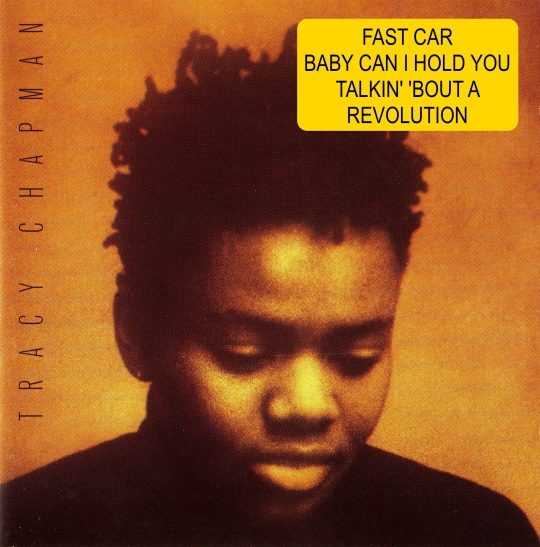
View On WordPress
0 notes